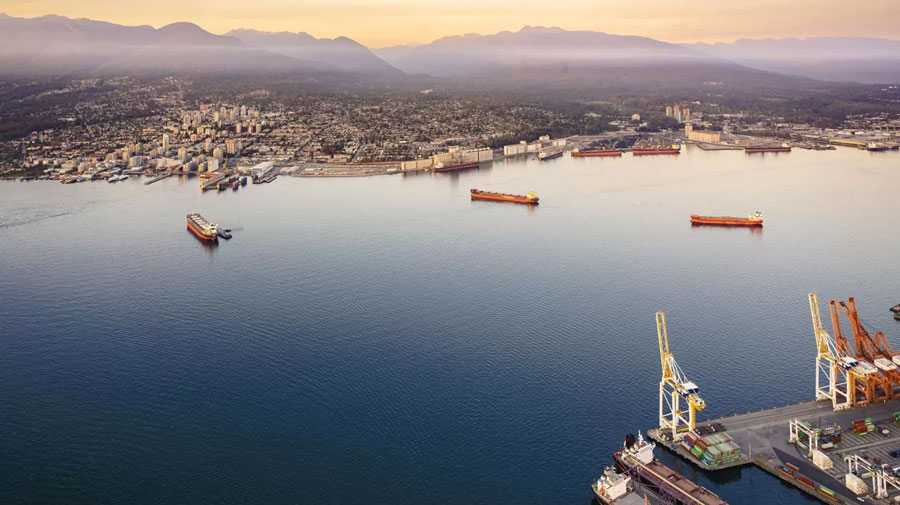


With the continuous progress of alliance restructuring, combined with the capacity constraints of Canada's inland rail hubs and the declining reliability of liner schedules, the Port of Vancouver, the gateway to Canada's west coast, is facing serious challenges of increased congestion. The situation is expected to worsen in the coming weeks. A number of ships including Maersk, MSC and Yangming have been delayed.
German carrier Hapag-Lloyd recently informed customers that in response to severe winter weather across Canada, Canadian Railways and Canadian National Railways have implemented tiered operating restrictions, including reduced train operating times and reduced train speeds, which have caused significant delays. The company expects the restrictions to remain in place for another 10 to 14 days, increasing the stay time for imported goods.
Specifically, Vancouver's GCT Delta terminal has reached 102% utilization, with berth delays of up to nine days; The DP World Centerm terminal is 83% utilised, with berth delays ranging from four to nine days. In addition, rail restrictions have resulted in a stay time of 4.1 days for imported containers at GCT Delta Terminal and 5.9 days at DP World Centerm terminal.
Destine Ozuygur, head of forecasting and operations at liner database eeSea, further explained that while the port's berth planners have foreseen an unusually busy few weeks ahead, there are other important factors at play when looking at the vessels waiting to berth in Vancouver. At present, about 25% of vessels in the port are waiting for a berth, and some of these vessels have been waiting for a very long time, thus pushing up the overall average waiting time for a berth.
For example, the Maersk Monte Qlivia, Marcos V and MSC Utmost VIII waited for nine, nine and 11 days respectively. Seaspan Falcon (7 days); YM Movement (7 days); YM Plum (6 days); YM Tranquility (10 days); And YM Uniform (8 days).
In particular, the 13,100TEU capacity MSC Elisa XIII has been waiting for 16 days, and while there isa gap in its waiting status that could indicate the ship is being repositioned, it still highlights the challenges the port faces in responding to liner customer demand.
Ozuygur noted that for the Port of Vancouver staff, these heavily delayed vessels - though not all of them - do create significant difficulties in berth planning. These vessels are often part of long-delayed alliance service routes that are being phased out.
In the case of Maersk Line's 6,350TEU Marcos V, the ship is exiting 2M Line's Trans-Pacific WCNA Loop 5 route and is about 16 days late at its previous port of call in Prince Rupert, meaning it will have to dock in Vancouver 28 days later than expected. "A vessel that arrived more than two weeks behind schedule and whose ETA (estimated time of arrival) was always uncertain could not have been prioritised for a berth at short notice," she added.





